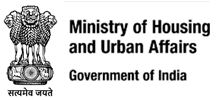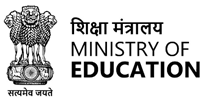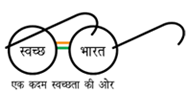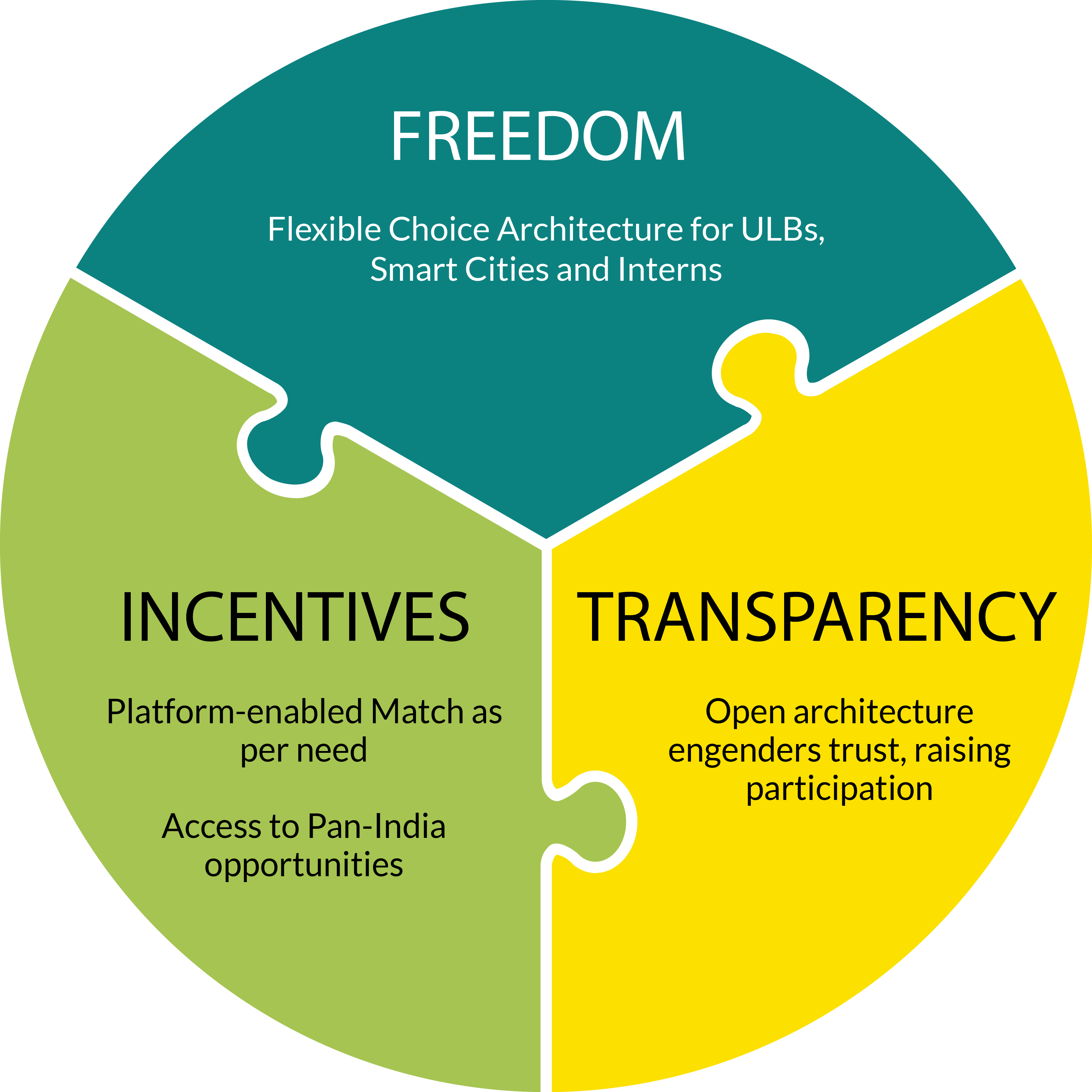






| Composition of Steering Committee | |
|---|---|
| Secretary, MoHUA | Chairman |
| Chairman, AICTE | Member |
| JS(SBM), MoHUA | Member |
| JS(AMRUT), MoHUA | Member |
| JS(NULM), MoHUA | Member |
| JS(HFA), MoHUA | Member |
| CCO(NEAT), AICTE | Member |
| DD(RIFD), AICTE | Member |
| JS(SCM), MoHUA | Member Secretary |
| Program Management Unit Smart Cities Mission Ministry of Housing and Urban Affairs |
| Platform Management Unit Chief Coordination Officer (NEAT) All India Council for Technical Education |
Urban ecosystems with their complexities are spaces for discovery, learning and design of new solutions that require a steady stream of fresh minds to infuse creative and dynamic thinking. Globally, local governments engage with academic institutions by providing students and fresh graduates internship opportunities to assist in research and fieldwork, thus creating the lab-to-land transfer of innovative solutions. This is mutually beneficial to students in gaining exposure to the functioning of cities and also to local governments as new solutions evolve for the city and a pool of talent gets created for absorption in the market. Activating this triple helix of stakeholders can go a long way in unleashing India’s demographic dividend and creating a talent pool that can pave the way for our cities becoming self-reliant.
TULIP has been envisioned to deliver the above by equipping the youth with problem-solving and critical thinking skills through hands-on, experiential learning in India’s fast-growing urban ecosystem. Experiential learning opportunities in the urban sector will help transform them into future leaders. The flexible nature of the program provides for inclusivity and access, is ecosystem driven and built on the principles of federated architecture and transparency.

The TULIP program is being implemented through a partnership between MoHUA and AICTE. At the State level, TULIP will be supported by the Urban Development departments in providing a clear roadmap for the ULBs/smart cities to adopt TULIP in their respective organisations.
At the ULB/smart city level they have been provided flexibility in defining the roles, numbers and other parameters of how TULIP can best serve their contextual needs.

TULIP has been designed keeping in mind the individual needs of the participants. The program intends to deliver for:
MoHUA: Strengthen institutional capacity of urban ecosystem and youth engagement towards urban initiatives, creating an ecosystem wherein youth can contribute towards building a liveable city.
ULBs & smart cities: Skilled, high-quality workforce and innovative citizen-centric solutions that help them address critical challenges.
Participating Graduates: Enhanced employability through “learning by doing” and opportunity to co-create innovation for cities. TULIP interns would get exposure in a large number of areas including but not limited to urban planning, urban design, different branches of engineering, information and technology, mobility, finance, social sector issues and environmental issues.